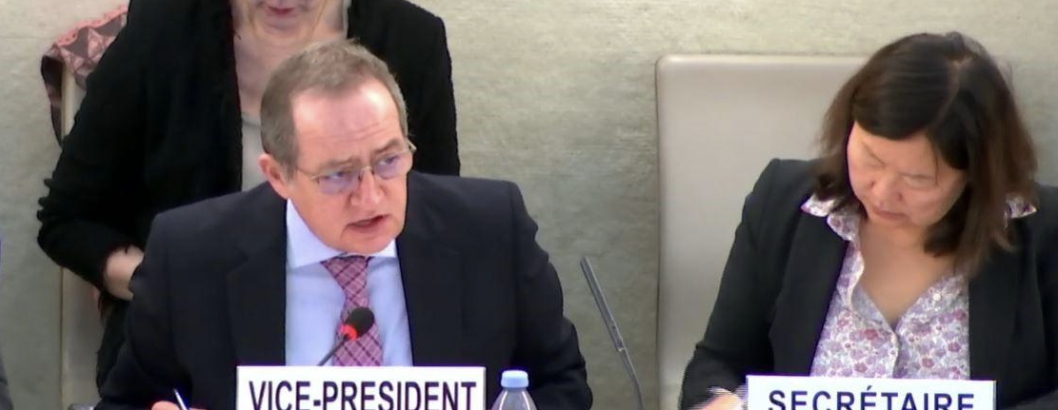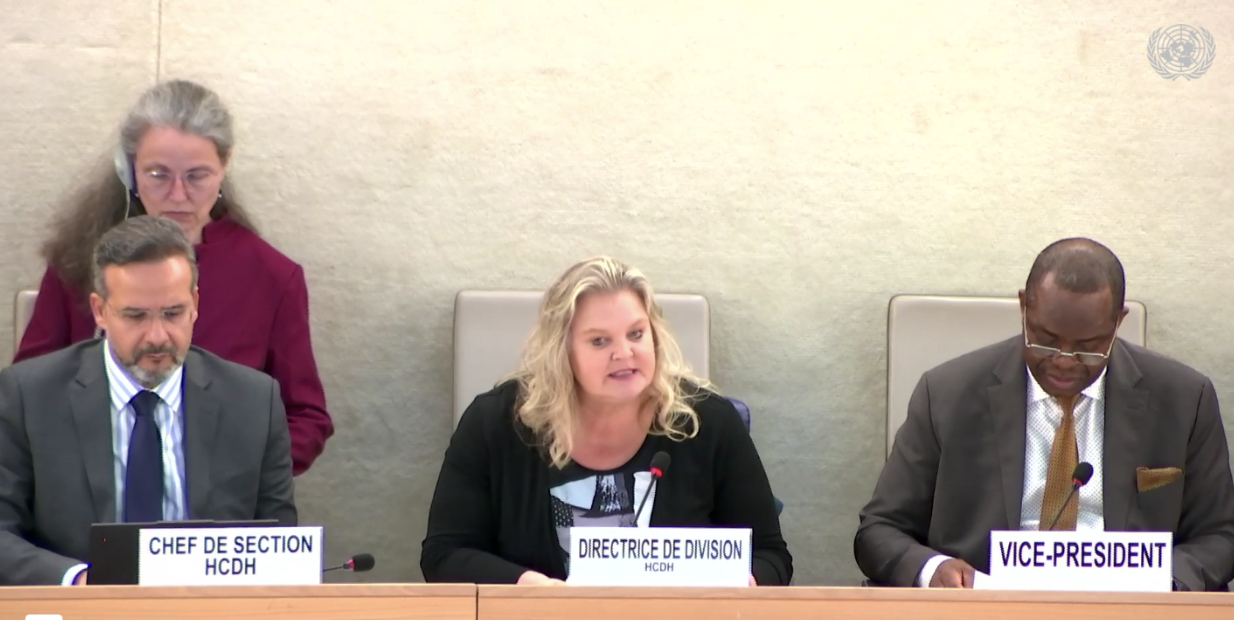Regional Meeting for Europe, Central Asia and North America on the International Decade for People of African Descent
23 – 24 November 2017
Room XIX Palais des Nations, Geneva, Switzerland
Oral Statement – Panel Discussion on Development
Delivered by: Ms. Lisa-Marlen Gronemeier
Joint oral statement by EAFORD and Geneva International Centre for Justice
Thank you Chairperson,
Geneva International Centre for Justice notes with deep concern the persistence in structural racism and racial discrimination across Europe and the North America that put grave obstructions in the way of people of African descent towards growth to their full potential. Not only do people of African descent have to work double hard and prove themselves consistently to attain success and recognition; they are often traumatized due to past experience – which in turn inhibits their individual and collective development.
With the adoption of the SDGs, States have pledged to leave no one behind and to prioritize the needs of the most marginalized and vulnerable of society. Still carrying the cruel legacy of the past, people of African descent often constitute the most marginalized of society. They experience deep-rooted, institutionalized discrimination in all spheres of life: in education, health, employment, housing, etc. Yet, as we have heard in earlier interventions, national policies of the former colonial powers fail to address racism against people of African descent. To stand any chance of moving towards the SDGs, States must adequately address the specific challenges and risks faced by people of African descent in law and in practice, inter alia, through targeted health programs and adequate insurance schemes; through affirmative action to ensure equal access to and footing in the education system and employment in all occupational sectors, including government and law enforcement.
Not only do the former colonizers deny African peoples’ full development in their own countries; they also extract, exploit, outsource and pollute abroad, thereby hampering sustainable development in African states. We furthermore call upon those African governments that trample the freedoms and rights and scorn the needs of their people, instead engaging in rampant corruption. Seeing no way to develop themselves and their communities in their home countries, many are thus forced to leave.
Geneva International Centre for Justice holds that the prohibition of racial discrimination constitutes an erga omnes obligation. In other words, it is an overriding principle, from which no derogation is permitted, and which is therefore binding. UN Member States should make responsible and full use of their national legal systems to achieve the most fundamental principles of equality and non-discrimination, and enhance cooperation among each other towards this inalienable goal.
Thank you.
Click here for the oral statement on the Panel discussion on "Justice".








